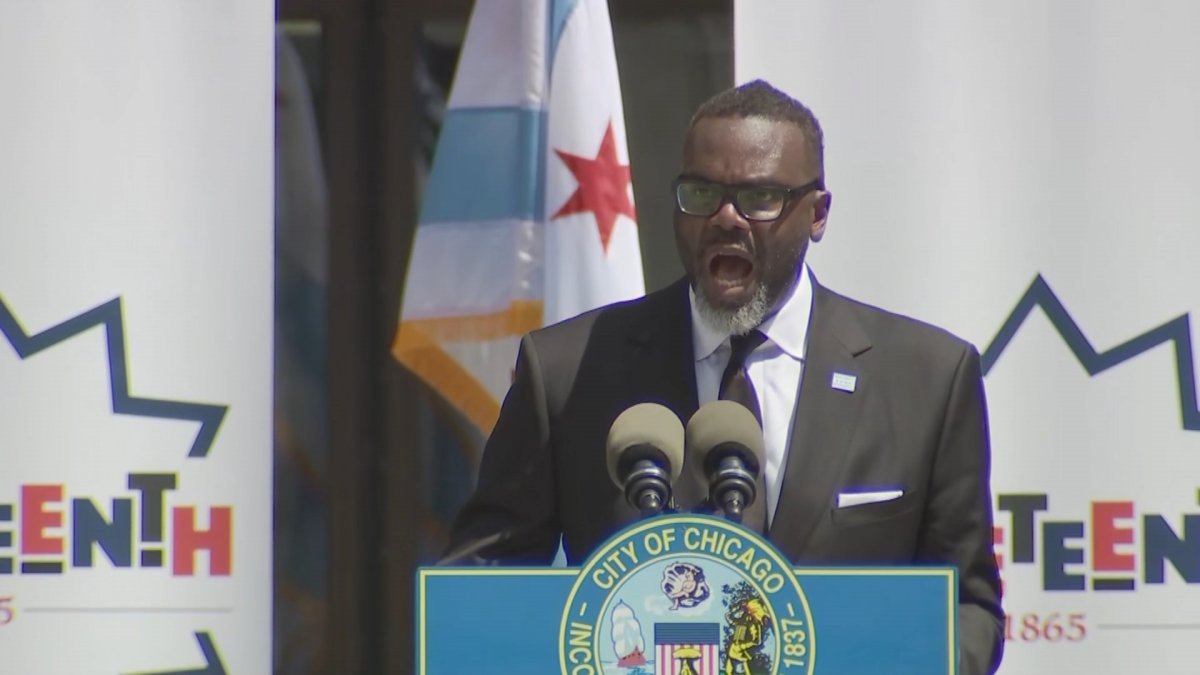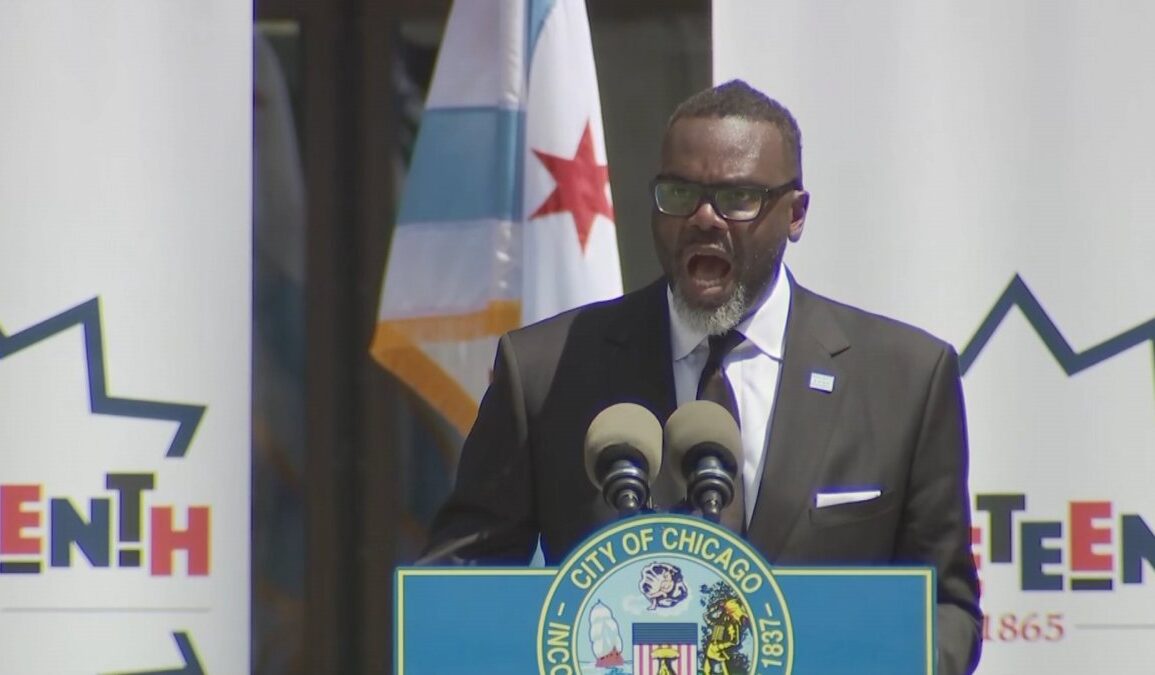
Chicago Mayor Brandon Johnson has announced the formation of a new taskforce aimed at considering reparations for Black Chicagoans.
Noting that Juneteenth was just days away, Johnson issued an executive order for the formation of the taskforce, who will be asked to evaluate the idea of reparations over the course of the next year. The mayor called it a pledge to confront the legacy of inequity in both Chicago and the U.S.
“On behalf of the city of Chicago, I apologize for the historic wrongs committed on Black people in Chicago,” he said. “Now is the time to deliver good on reparations for people of Chicago, in particular Black people.”
According to the press release, the taskforce will conduct a study and examination of “all policies that have harmed Black Chicagoans,” ranging from slavery to policies that included redlining and other discriminatory acts.
The executive order did not specify whether such reparations would include cash payments, but Ald. Jason Ervin says there are myriad ways of righting historical wrongs.
“People always associate reparations with money, but there are policy changes and other items that can be done to repair the harm that such policies have caused,” he said.
The taskforce will have a period of one year to issue its recommendations.
“It’s about dealing with the policies that created the situations we’re dealing with today,” Ervin said. “I think by studying and understanding what policy changes need to be made to make people whole, that’s the whole purpose of this conversation.”
Some members of the City Council have said they’d like to see revenues from cannabis sales used toward whatever recommendations are made, but no funding source was explicitly identified.
Chicago wouldn’t be the first area city to explore the idea of reparations. Evanston put a plan in place to pay reparations for past housing discrimination, but Judicial Watch, a conservative legal group, has filed a lawsuit challenging the constitutionality of the program.
“You can’t just tell someone they’re not eligible for a benefit purely on the basis of race,” the group’s president Tom Fitton said. “It seems to be rather difficult to say there’s this generalized issue from which I could have suffered consequences, and to get a government benefit based on it.”
The program was based on payments of up to $25,000 to Black residents with ties to the community between 1919 and 1969, during which housing policy caused segregation of Black residents in the city.
Judicial Watch argues that the reparations plan violates the equal protection clause of the 14th Amendment because the program uses race as a basis for eligibility.
According to the Chicago Sun-Times, Evanston officials declined comment based on the pending nature of the litigation.


